Co-sponsored by the GW Environmental and Energy Law Program, Adaptation Leader, and the GW Alliance for a Sustainable Future

Keynote speaker: Hannah Teicher, Assistant Professor of Urban Planning at the Harvard University Graduate School of Design

Keynote speaker: James May, Richard S. Righter Distinguished Professor of Law at Washburn University School of Law
On February 6, 2025, Receiving Communities: A Workshop to Advance a Research & Policy Agenda, assembled a distinguished group of speakers at GW Law, including law professors and professors from related disciplines including urban and regional planning, city officials, architects, planners, and others leaders in the field of climate change mobility. The event provided a vital forum for interdisciplinary dialogue on the urgent challenges presented by climate-induced displacement and the need to determine where the displaced peoples will go.
Marking a significant milestone in Adaptation Leader’s 18-month Receiving Communities Initiative, the organization’s core team presented the draft document, “Towards a Research & Policy Agenda for Receiving Communities in the U.S.” Developed with contributions from dozens of experts on these topics, the paper synthesizes the current state of play and outlines various potential innovative approaches for supporting impacted communities. The document is now open for public comment on Adaptation Leader’s website. As Adaptation Leader continues to build a community of practice around these critical issues, stakeholders are encouraged to review the document, provide feedback, and share it with their networks.

Ira Feldman, Founder and Chairman of Adaptation Leader

A team from Adaptation Leader joined the distinguished speaker lineup.
Assistant Dean for Environmental Law, Randall Abate, opened the workshop with a welcome address, setting the tone for the day’s discussions on the growing challenges of climate-induced displacement and its implications for law, policy, and society. Ira Feldman, Founder and Chairman of Adaptation Leader, followed with an insightful overview of the current policy landscape surrounding climate-induced displacement and receiving communities. He addressed the pressing need for institutions to develop robust climate adaptation strategies, particularly those that focus on supporting communities affected by climate change. Adaptation Leader, a non-profit organization, has been a key player in building institutional capacity and knowledge related to climate adaptation.
Donna Attanasio, Managing Director of the GW Alliance for a Sustainable Future, also welcomed participants and underscored the importance of interdisciplinary collaboration. She highlighted the university-wide mission of the GW Alliance, which serves as a critical hub for researchers and practitioners working on sustainability and climate change issues.
Two keynote speakers provided insights into the challenges of climate mobility and receiving communities. Hannah Teicher, Assistant Professor of Urban Planning at Harvard University Graduate School of Design, shared compelling relocation stories, presenting the real-world experiences of communities facing displacement due to environmental factors. Her insights emphasized the need for innovative, community-driven solutions and highlighted lessons learned from past relocation efforts, underscoring the importance of culturally sensitive and context-specific approaches to adaptation.
James May, Richard S. Righter Distinguished Professor of Law at Washburn University School of Law, tackled the constitutional and legal challenges inherent in safeguarding the rights of climate displaced communities. His address delved into the legal frameworks necessary to protect the displaced, advocating for the creation of laws that provide adequate protection during the relocation process.



The workshop featured several breakout sessions, which offered attendees opportunities to delve into specific topics related to climate mobility. Sessions included discussions on climate havens—areas that may become more habitable due to environmental shifts in other regions—and how to plan for migration to these areas. Local initiatives were explored, showcasing successful examples of adaptation strategies on the ground, with an emphasis on community-driven approaches. Scenario planning, which involves preparing for potential climate futures and developing adaptive policies, was another key topic discussed during the sessions. A “future leaders” panel featured current masters and undergraduate students and recent law and planning graduates on topics related to their research and field work on climate mobility. These sessions provided an opportunity for participants to share insights and explore new avenues for collaboration in addressing the challenges of climate-induced displacement.
The wrap-up session, led by Jeff Peterson, Visiting Scholar at the Environmental Law Institute (ELI), focused on the multifaceted challenges of relocation due to rising sea levels, property destruction, and intensifying storms. Peterson emphasized the importance of ensuring that relocated communities are placed in healthy and sustainable ecosystems, offering insights on integrating environmental resilience with social equity in relocation planning. His remarks encouraged participants to think critically about how to balance the need for disaster response with the long-term sustainability of relocated communities.
Overall, the workshop served as an essential platform for addressing the urgent issue of climate-induced displacement, advancing the dialogue between academia, policy, and practice. It called attention to the need for proactive and adaptable policies that not only address the immediate needs of displaced communities but also ensure long-term sustainability and resilience in receiving communities. The event’s success in fostering meaningful conversations promises continued collaboration across disciplines to tackle the climate mobility crisis.
A reception followed the event, providing an opportunity for participants to engage in further networking and dialogue. Conversations continued around potential future collaborations and joint research initiatives, with participants expressing strong interest in exploring ways to advance Adaptation Leader’s research and policy agenda discussed during the workshop.


